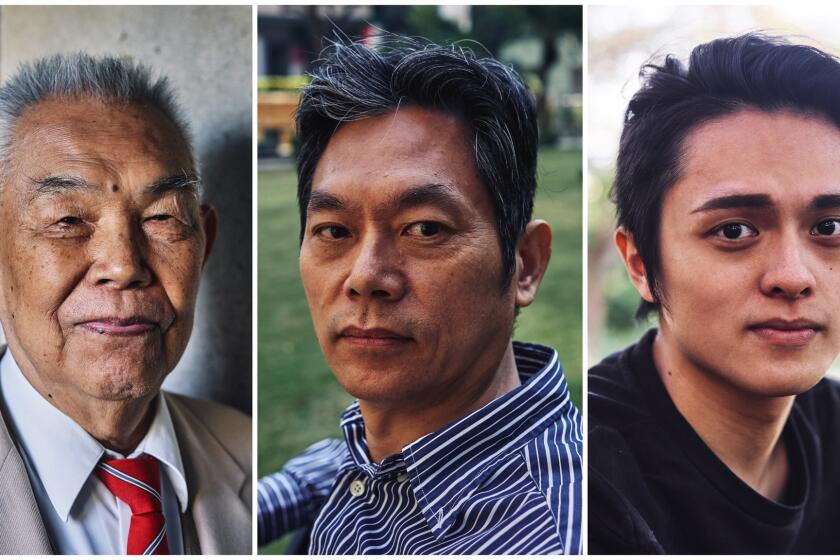Trump plans to ship a fleet of F-16s to Taiwan. China isn’t happy about it
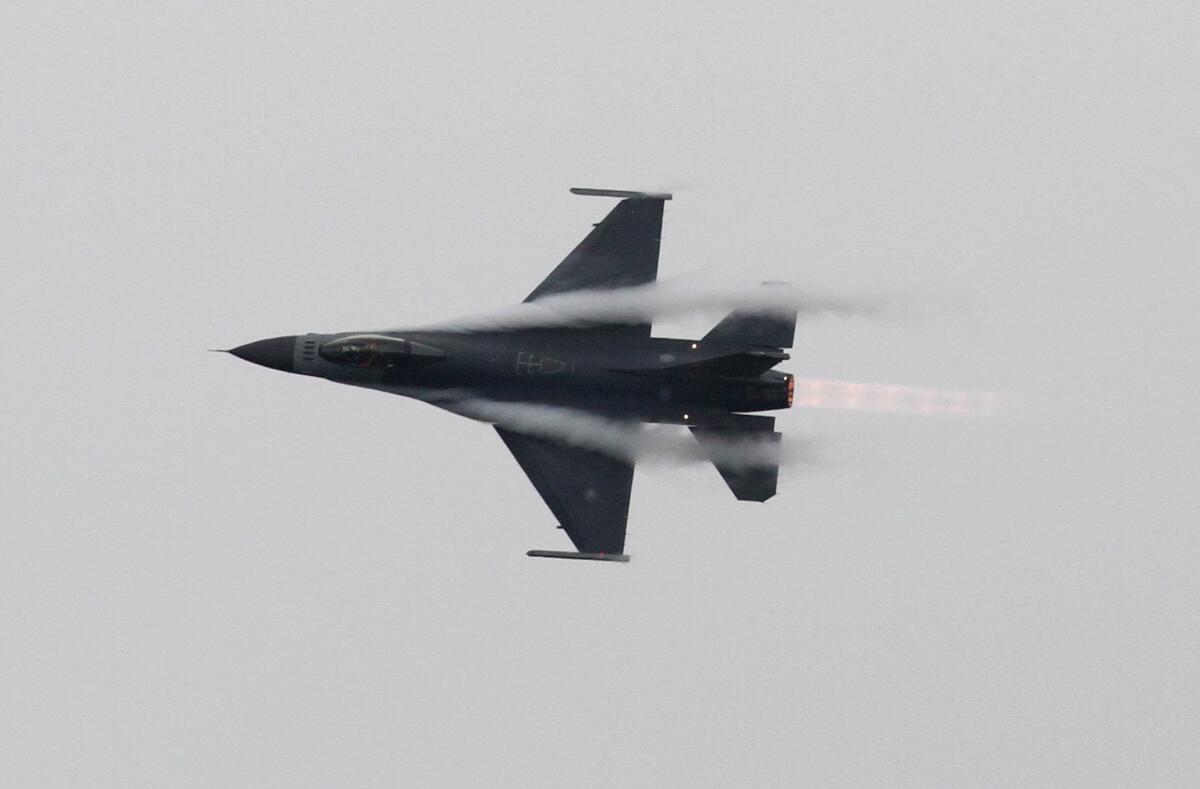
- Share via
TAIPEI, Taiwan — When President Trump agreed to Taiwan’s request to buy a fleet of American-made F-16 fighter jets, it marked the largest arms sale in 20 years for the island. But Taiwan now risks a backlash from China, a vastly stronger military power that is determined to one day bring Taiwan back under its flag.
The $8-billion sale, which Trump’s predecessors had resisted for fear of angering Beijing, is just one bullet point showing that U.S.-Taiwan relations have moved closer under Trump. Both sides find it easier, at the moment, to resist China than to engage it.
Beijing was quick to denounce the sale, which it said was sending “seriously erroneous signals to Taiwan secessionists,” according to the state-run China Daily. That language reflects China’s view that Taiwan is part of the People’s Republic. “Nobody should underestimate our will and ability to safeguard national sovereignty and territorial integrity,” Ma Xiaoguang, spokesman for Beijing’s Taiwan Affairs Office, said Monday.
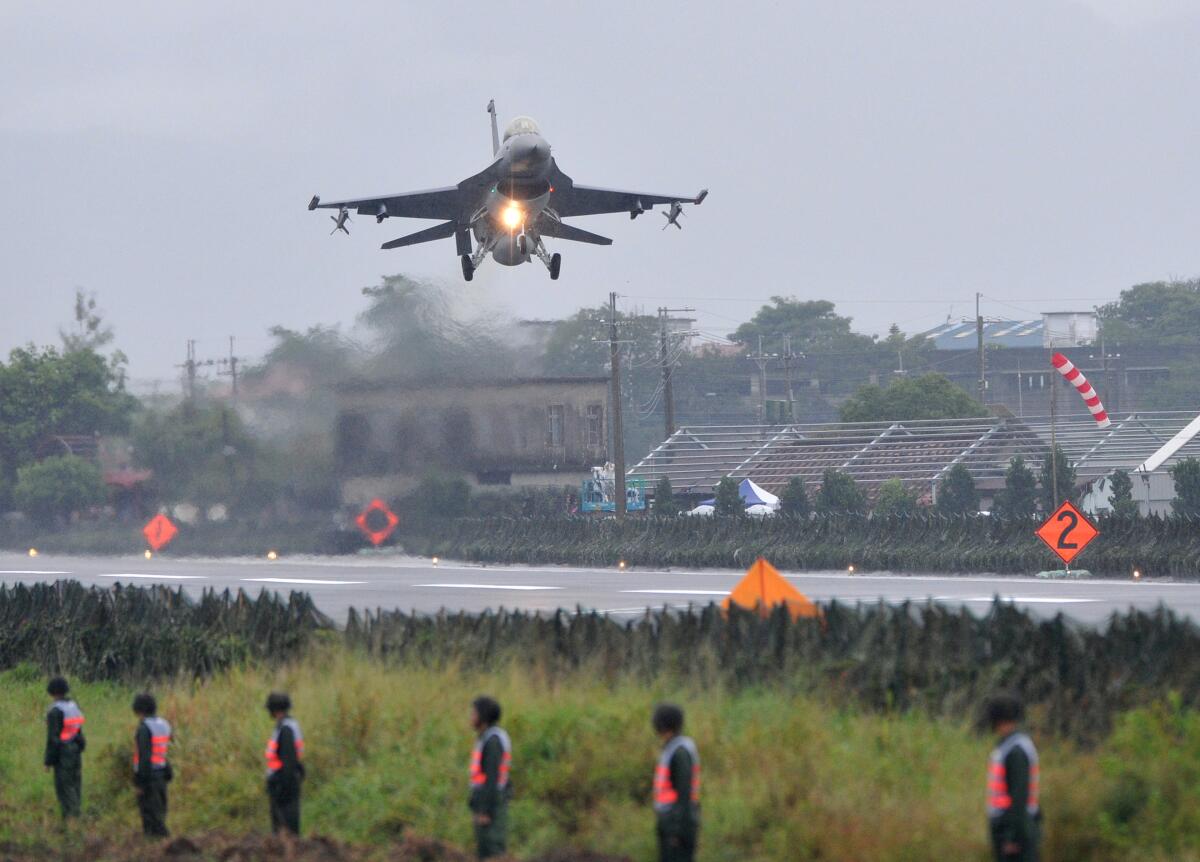
Plans for the F-16 sale, announced to Congress on Thursday, mark the fifth U.S. arms sale to Taiwan since Trump took office. The U.S. has also quickened the pace of high-level visits to Taiwan, opened a new diplomatic property in Taipei and supported pro-Taiwan legislation.
An increasingly emboldened China hopes to rule Taiwan someday, using force if needed. Taiwan broke away from the mainland after the Communist revolution there in 1949. Washington was its steadfast ally until downgrading official ties with Taipei in 1979 to establish relations with the bigger, faster-growing People’s Republic.
Trump’s decision to go forward with the arms sale reflects, in part, the tougher line he has taken on China, especially in U.S. trade policy. At the same time, he has sought Beijing’s help in trying to limit North Korea’s nuclear program.
“The administration on average has a tougher and more adversarial view of China than the Obama administration,” said Denny Roy, senior fellow at the East-West Center think tank in Honolulu. “That leads to a greater willingness to treat Taiwan more as a security partner, because Taiwan’s strategic value has increased and because there is less incentive to try not to antagonize China.”
U.S. officials have maintained informal ties over the last 40 years with Taiwan, a former Cold War friend that they still prize as one in a chain of Asia-Pacific democracies useful in checking Chinese expansion. Before Trump, U.S. presidents prioritized ties with China, letting sometimes years pass between arms sales and months or more between any high-level contact.
Trump signaled a new approach shortly after his 2016 election, when he took a call from Taiwanese President Tsai Ing-wen, breaking nearly 40 years of protocol that steered clear of direct talks with Taiwan’s leadership. The new administration approved a $1.4-billion arms sale to Taiwan in mid-2017, followed by clearance in April 2018 for marketing licenses that would let American companies start selling technology for Taiwan’s submarine development.
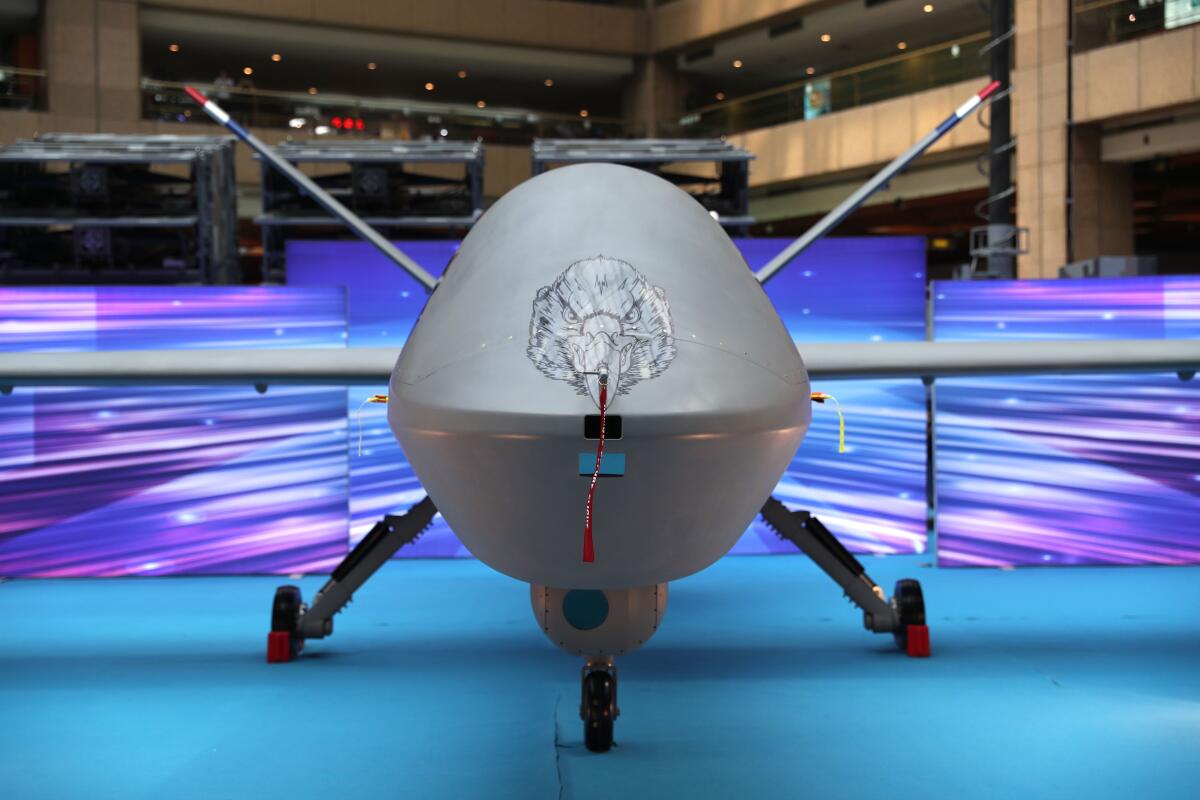
“Arms sales can be used as or seen as a tool to exert pressures on Beijing,” said Alexander Huang, strategic studies professor at Tamkang University in Taiwan.
The U.S. Navy has sent ships 11 times over the last year through the Taiwan Strait separating Taiwan and China. Those passages were once rare.
In March 2018, Trump signed the Taiwan Travel Act, which encourages high-level exchanges between officials. His State Department said last year it would review its own ties with third countries that drop diplomatic ties with Taiwan under pressure from China. It slammed China for asking that 66 foreign multinationals change their websites to avoid casting Taiwan as a sovereign state.
“This administration’s stated policy towards China is the most hostile of any since the Eisenhower administration,” Richard Bush, senior fellow at the Brookings Institution China Center, said at a June forum in Taipei.
In supporting Taiwan, the United States is recognizing the island as a “force for good in the world,” the Foreign Ministry in Taipei said in late July.
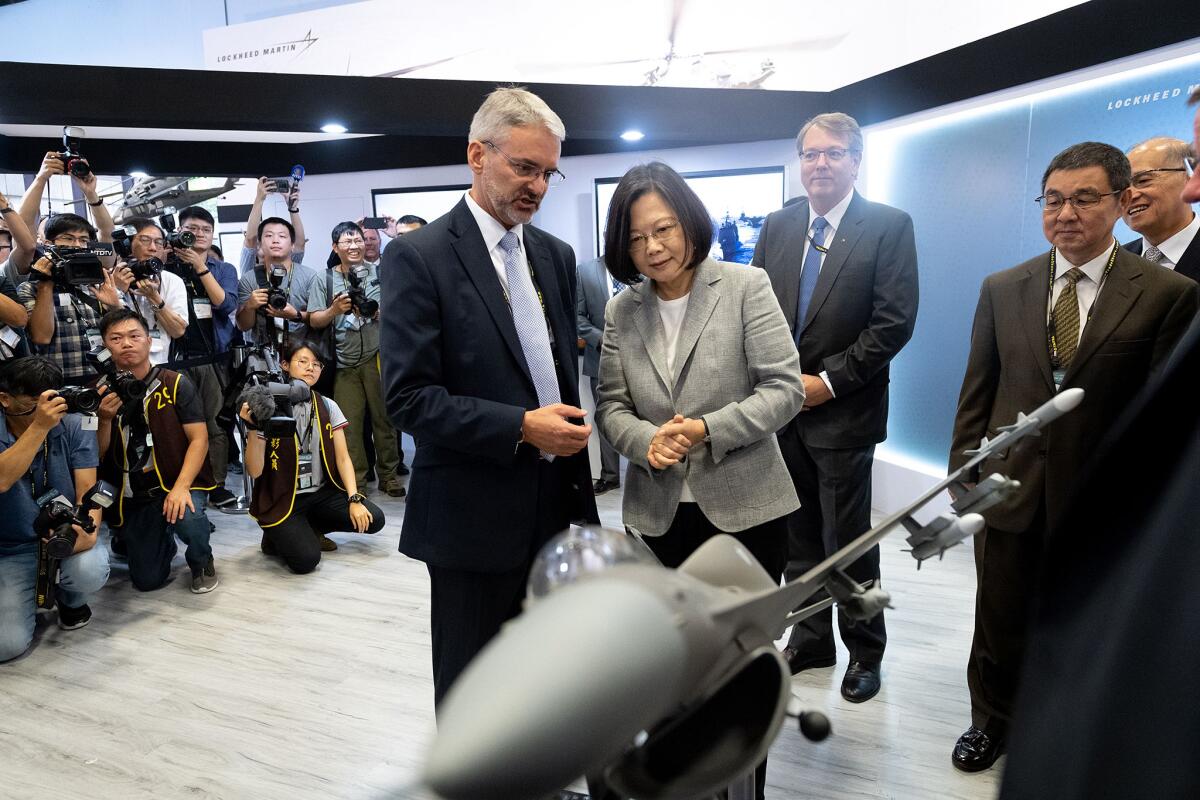
“Facing China’s nonstop increase in pressure on Taiwan ... the White House, National Security Council and the Pentagon have openly supported Taiwan,” the ministry added.
The uptick in relations gives Tsai a foreign policy laurel before she stands for reelection in January, political scientists have said. But Trump’s tactics also raise fears among Taiwanese that they’re being used as a bargaining chip with China.
That fear grew along with the Sino-U.S. trade dispute, which has led the United States to impose tariffs on $250 billion in Chinese exports, with more set for September. A Sino-U.S. trade deal could push Taiwan into the background again.
Trump is “playing the Taiwan card” to seek concessions from China ahead of his own 2020 reelection campaign, said Alex Chiang, an international relations professor at National Chengchi University in Taipei. “In the end, I still think Donald Trump will treasure the relationship with China more,” Chiang said. “He will play the card very smartly, try to make compromises, some concessions.”
Jennings is a special correspondent. Times staff writer Tracy Wilkinson in Washington contributed to this report.
More to Read
Sign up for Essential California
The most important California stories and recommendations in your inbox every morning.
You may occasionally receive promotional content from the Los Angeles Times.
